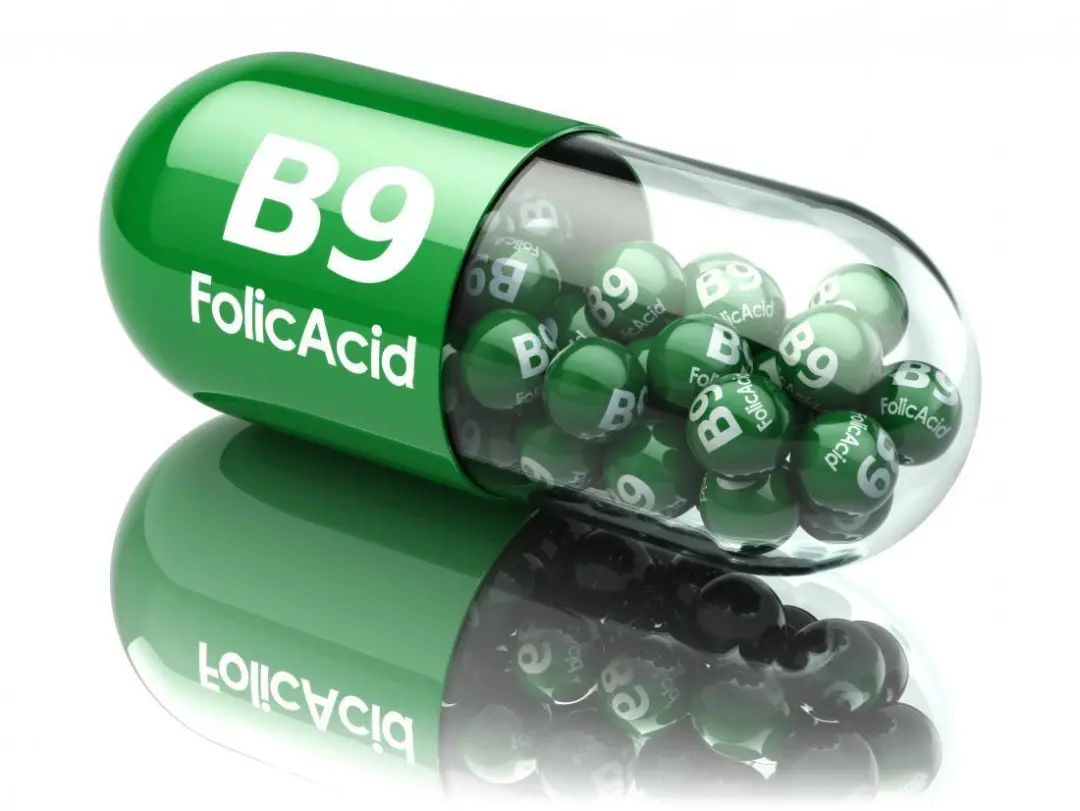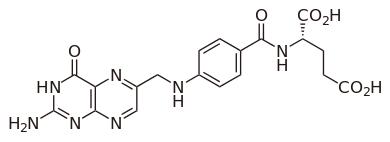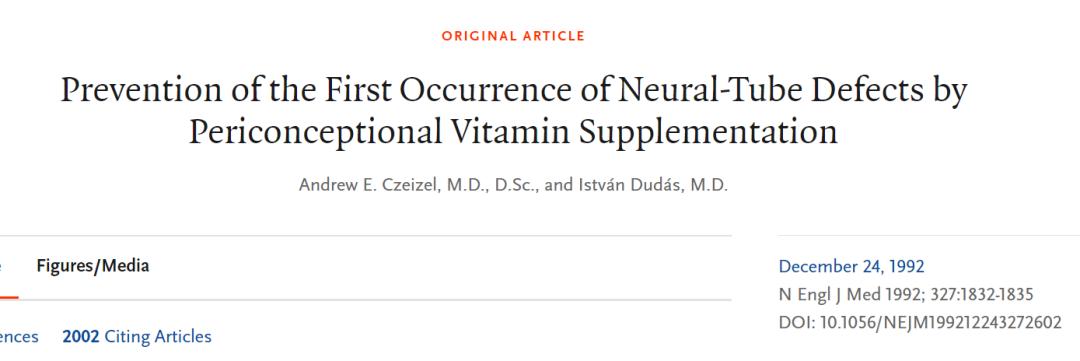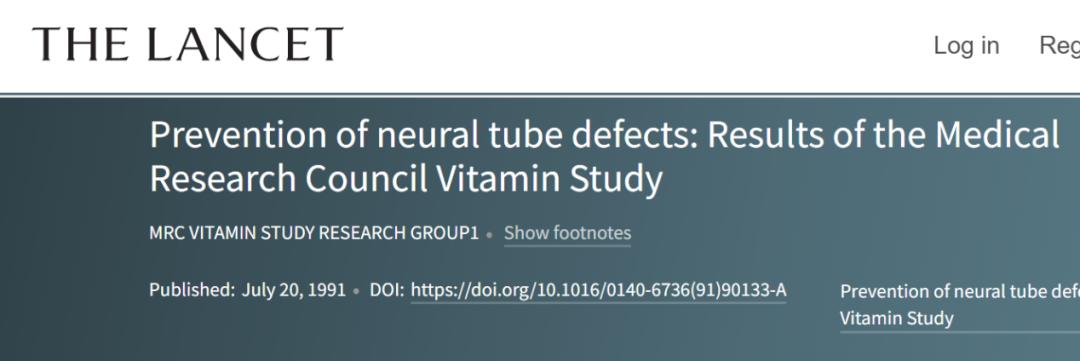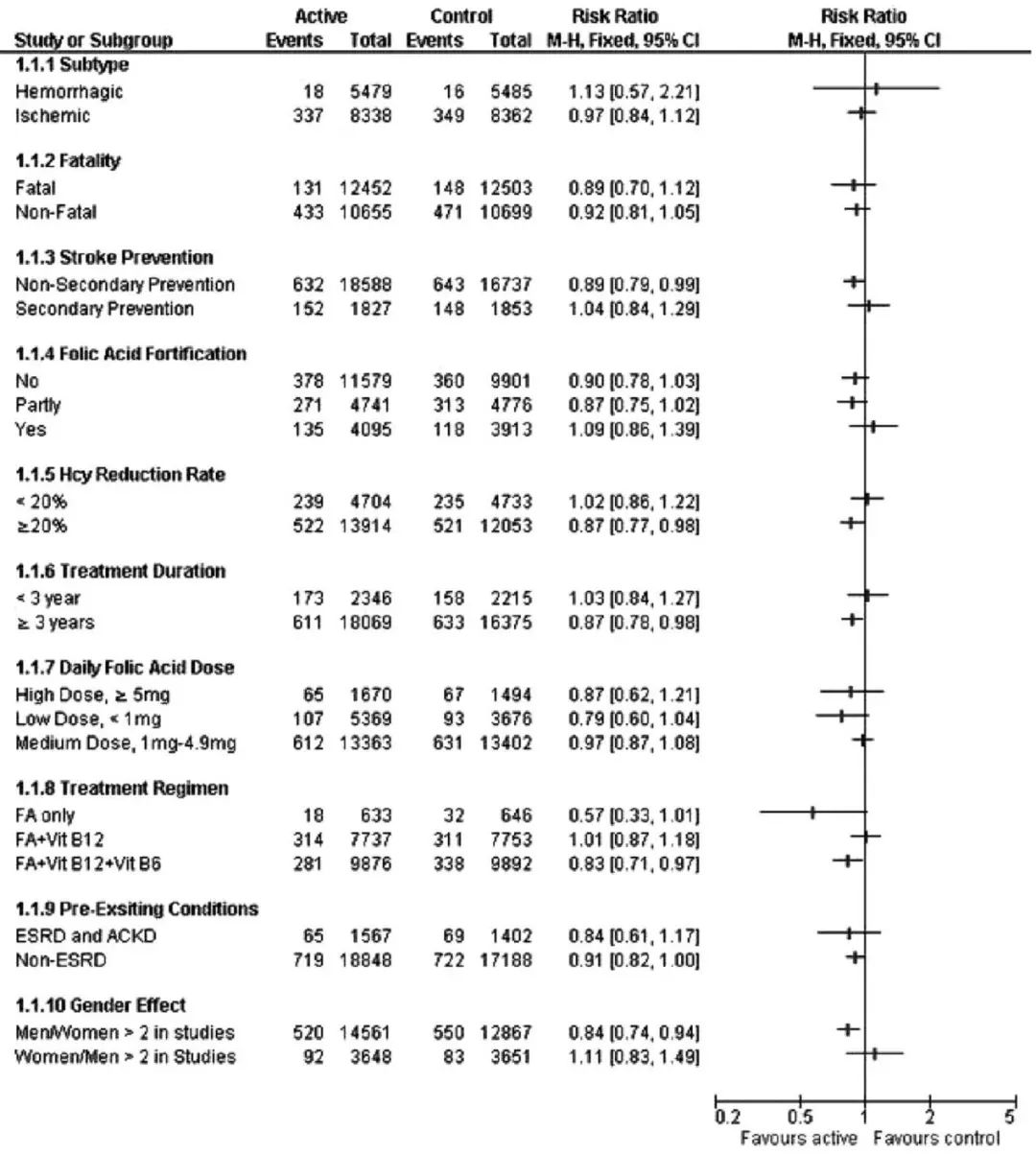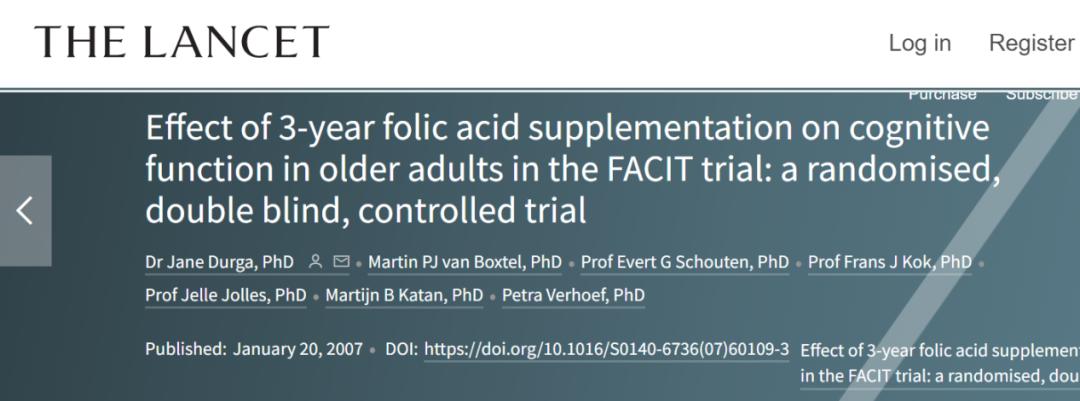Original DY MedSci Metz
Lead: spoiler of folic acid new consensus.
Medical news today
On September 5th, the conference of "Consensus of Multidisciplinary Experts on Reasonable Clinical Folic Acid Supplement in China" was successfully held in Beijing. After being checked by authoritative experts, the consensus gives personalized and detailed folic acid supplementation suggestions to the general population and the special population according to different physiological stages.
Folic acid is a water-soluble B vitamin, which naturally exists in some foods, can also be added to other foods, and can be used as a dietary supplement. "Folic acid" used to be called "folic acid protein", sometimes also called "vitamin B9", which is a general term for naturally occurring food folic acid and folic acid in dietary supplements and fortified foods. Food folic acid is in the form of tetrahydrofolic acid (THF), which usually has other glutamic acid residues, making it a polyglutamate. Some dietary supplements also contain 5-methyl -THF (also known as L-5-MTHF, 5-MTHF, L- methyl folic acid or methyl folic acid) in the form of monosodium glutamate.
Folate, wiki
Folic acid helps to form DNA and RNA, and participates in protein metabolism. It plays a key role in the decomposition of homocysteine, which is an amino acid. If the content is too high, it will have harmful effects on human body. Folic acid is also needed to produce healthy red blood cells. Folic acid is very important in the period of rapid human growth, such as pregnancy and fetal development. Therefore, folic acid deficiency is closely related to the occurrence and development of many diseases, such as neonatal neural tube defects (NTDs), various pregnancy damages (abortion, premature delivery, etc.), hypertension, stroke, abnormal mental behavior and other cognitive disorders.
Who is short of folic acid?
The following situations may increase people’s risk of folic acid deficiency:
1. drinking too much. Alcohol will interfere with the absorption of folic acid and accelerate the decomposition of folic acid. In addition, alcoholics tend to eat inferior diets with low folic acid content, which increases the risk of folic acid deficiency in this group of people.
2. Pregnancy. Because folic acid plays an important role in fetal cell development, the demand for folic acid will increase during pregnancy.
3. Intestinal surgery or digestive system diseases. Surgery involving digestive organs or lowering normal gastric acid levels may affect folic acid absorption. Celiac disease and inflammatory bowel disease can also reduce the absorption of folic acid. Studies show that about 20%-60% of patients with inflammatory bowel disease suffer from folic acid deficiency.
4. Genetic variation. People with MTHFR gene mutation can not convert folic acid into its active form, which accounts for about 29% of Hispanic population, 10% of Caucasians and Asians, and 1% of African-Americans.
Lack of folic acid may lead to anemia, weakness and fatigue; Irregular heartbeat; Shortness of breath; It is difficult to concentrate; Hair loss; Pale skin; Symptoms such as aphtha.
How do the general population supplement folic acid?
In fact, folic acid deficiency is rare, but some people may be in marginal folic acid state. Folic acid can’t be synthesized in the human body and can only be taken from food. For individuals with folic acid deficiency or deficiency, it is first recommended to supplement folic acid with "food therapy" by improving diet structure. The consensus points out that green leafy vegetables, bean products, animal livers, lean meat and egg yolks are good food sources of folic acid, and chicken livers (1172.2μgDFE/100g), amaranth (419.8μgDFE/100g), pig livers, sheep livers and soybeans are rich in folic acid. Foods with folic acid content ≥ 120 gdfe/100g (solid) or 60μgDFE/100g (liquid) are "high or rich in folic acid", and foods with folic acid content or folic acid source are half. However, if the absorption and utilization rate of natural food is low, the general population should also take measures such as folic acid supplement or fortified food, and the effective and safe dose is 0.4-1mg per day.

Photographing network
However, it should be noted that long-term large-dose (> 1 mg) folic acid supplementation may cause health risks. Studies have shown that taking more folic acid can mask vitamin B12 deficiency. This deficiency most often occurs in the elderly or people who eat vegetarian food, among which B12 deficiency is more common. Folic acid and B12 are both involved in the production of red blood cells, and the shortage of either will lead to anemia. People who take high-dose folic acid supplements may correct anemia and feel better, but B12 deficiency still exists. In this case, if high folic acid intake continues to "mask" the symptoms of B12 deficiency for a long time, it may cause slow but irreversible damage to the brain and nervous system. In addition, long-term folic acid overdose also has the effects of increasing cancer risk, aggravating neurodegenerative diseases, affecting zinc absorption and reducing immunity. Therefore, it is suggested that if natural folic acid is still available every day, folic acid supplements should not be used more than 400μg per day.
How do special people supplement folic acid?
Pregnant women (including pregnant women)
During pregnancy, folic acid demand will increase due to nucleic acid synthesis. Folic acid deficiency during perinatal period will increase the risk of NTDs, leading to birth defects of fetal spine (spina bifida) and brain (anencephaly). Fifty years ago, no one knew what caused these birth defects. Later, two large trials randomly assigned women to take folic acid or placebo, showing that too little folic acid would increase the birth probability of deformed babies, and getting enough folic acid could greatly reduce this incidence.
In addition, folic acid deficiency during pregnancy may also increase the risk of abortion, premature delivery, stillbirth, megaloblastic anemia, pregnancy-induced hypertension, autism spectrum disorder’s offspring and other diseases.
At present, folic acid supplementation for women of childbearing age is a basic policy in China. The incidence of NTDs in China decreased from 27.4/ 10,000 in 1987 to 1.5/ 10,000 in 2017, a decrease of 94.5%.
The blood folic acid level of rural women in northern China is low. The research results show that this group of people can reach the level of preventing NTDs by taking folic acid 0.4mg/d for at least three months. In addition, many studies suggest that increasing dietary folic acid intake can also reduce the risk of NTDs by about 30%-60%.
Therefore, it is suggested by consensus that women should try their best to take food supplements during pregnancy preparation and early pregnancy, and women in the middle and late pregnancy and lactation can take food supplements and folic acid supplements. It is suggested to supplement folic acid 0.4mg/d or 0.8mg/d from the possible pregnancy or at least 3 months before pregnancy until the third month of pregnancy. The intake of folic acid in the second and third trimester of pregnancy should reach 600 gdfe/d, and it is suggested to supplement folic acid with 400 gdfe/d in addition to food supplement. It is recommended to take 550 gdfe/d folic acid during lactation, and it is recommended to supplement 350 gdfe/d folic acid in addition to food supplement. Personalized supplements are needed for people who live in the north, eat less vegetables and fruits, and have low blood folic acid levels. For women with NTDs reproductive history, diseases such as diabetes, and TT genotype at MTHFR677 locus, the consensus also made tailor-made suggestions.
Cardiovascular disease
The increase of Hcy level caused by folic acid deficiency is considered as an independent risk factor for atherosclerosis and cardiovascular and cerebrovascular diseases. Folic acid deficiency Several large-scale randomized trials of B vitamin supplements to reduce homocysteine levels and prevent heart disease and stroke have not found the benefits of folic acid supplementation. These trials have a similar design: adults with a history of heart disease or stroke or at high risk of heart disease are given pills or placebos containing high doses of vitamins B6, B12 and folic acid. Studies have found that taking high doses of three B vitamins can reduce the level of homocysteine, but it does not lead to a decrease in coronary heart disease events.
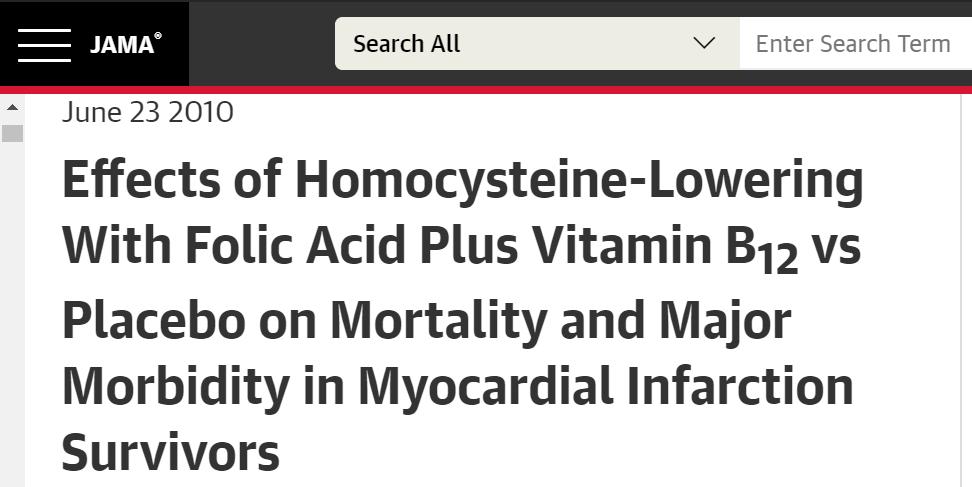
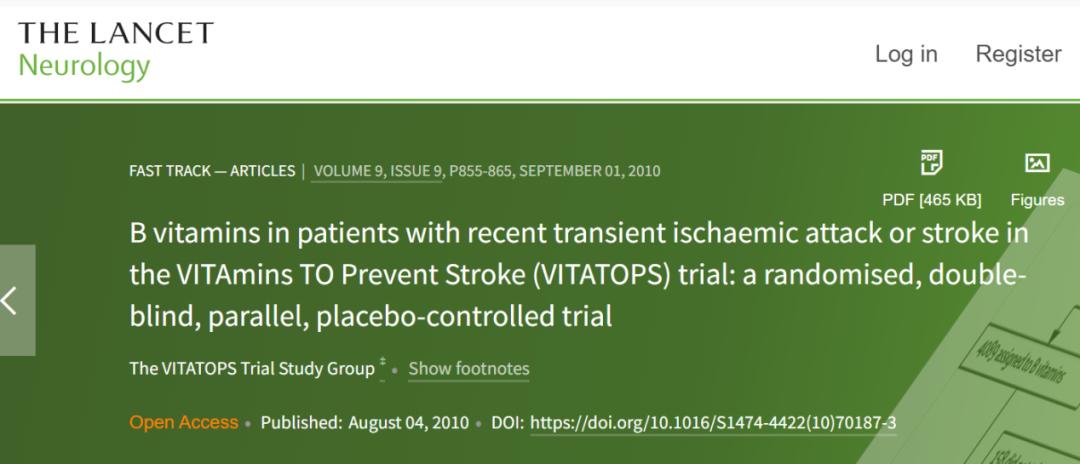
However, looking at cardiovascular diseases as a whole may mask the potential benefits of at least one B vitamin, and it may be too late to study people with advanced vascular diseases. An analysis of several studies shows that folic acid supplements can reduce the risk of stroke in people who have not yet had a stroke, but they cannot reduce the risk of a second stroke in people who have already had a stroke.
Effect of folic acid supplementation on stroke risk in preset subgroups
Therefore, it is not recommended to use folic acid to prevent cardiovascular diseases, but folic acid supplementation is recommended for cardiovascular high-risk groups and hypertensive patients with HHcy to reduce Hcy levels. In order to reduce the risk of the first stroke, folic acid monotherapy or fixed compound preparation containing folic acid can be used for patients with HHcy with hypertension. Taking 0.8mg folic acid combined with vitamin B12 daily can achieve the best effect of reducing Hcy.
Neurobehavioral disorders
1. autism spectrum disorder
Autism spectrum disorder (ASD) is a neurodevelopmental disorder, which is characterized by difficulties in communication and interaction with others, limited interests and repetitive behaviors. More and more evidence shows that folic acid supplementation during pregnancy may reduce the risk of ASD or reduce the increase of ASD risk caused by prenatal exposure to certain drugs and toxic chemicals. The mechanism of these potential benefits is not clear, but it may be related to the role of folic acid in DNA methylation, which in turn will affect neural development.
Some (but not all) observational studies show that there is a correlation between the use of folic acid and/or multivitamin supplements by pregnant women before and/or during pregnancy and the lower risk of ASD in female offspring. A case-control cohort study of 45,300 Israeli children in 2018 showed that the risk of ASD in children was significantly reduced when mothers took folic acid and/or multivitamin supplements before and/or during pregnancy.
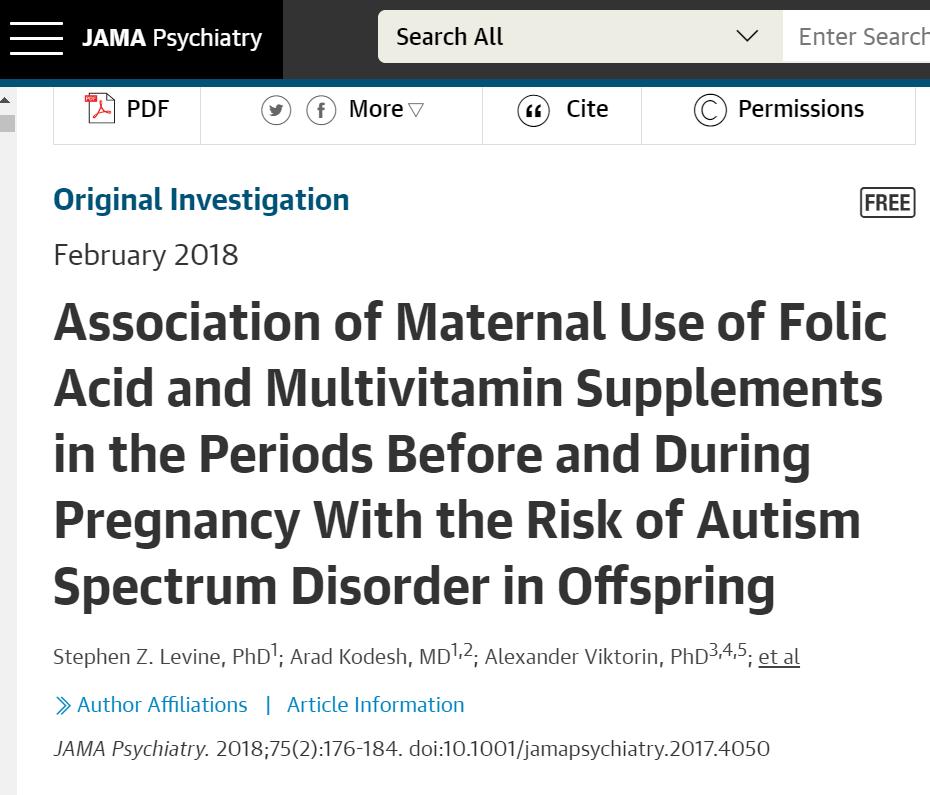
Up to now, the evidence shows that there may be a negative correlation between folic acid intake of mothers during pregnancy and the risk of ASD in their offspring, but there is no evidence to support it in large-scale clinical studies. In addition, some studies believe that children with ASD also have different degrees of abnormal folic acid metabolism due to bad eating behavior, so not exceeding folic acid in these children may be beneficial to the treatment of ASD, but there is still a lack of clinical evidence. Therefore, it is recommended that women of childbearing age should be supplemented with 0.8mg/d regularly to reduce the risk of ASD in their offspring.
2. Depression
Nowadays, depressive disorder has become the second disease in China, with a prevalence rate of 3.02%, ranking first in the total burden of various mental diseases. Some studies have shown that folic acid deficiency is related to depression and low response to antidepressants. The mechanism may be related to the involvement of folic acid in the synthesis of neurotransmitters in the brain. In addition, HHcy is related to depression, and folic acid can degrade Hcy.
In a racial diversity study of 2948 Americans aged 15-39, the concentration of folic acid in serum and red blood cells of patients with severe depression was significantly lower than that of patients who had never suffered from depression. Some clinical studies have shown positive results about whether folic acid supplementation may help depression when used with traditional antidepressants. In addition, the guidelines for the treatment of depression revised by the British Psychopharmacology Association in 2015 and the Canadian network for the treatment of depression and anxiety both recommended folic acid as a supplement to the treatment of serotonin reuptake inhibitors for depression. Therefore, the consensus is that folic acid deficiency is related to depression, and low folic acid level is related to low response of antidepressants. It is recommended that patients with depression should be supplemented with folic acid reasonably on the basis of antidepressants, especially serotonin reuptake inhibitors, and the recommended dose is 0.5-2.5 mg/d.
Cognitive dysfunction
Statistics show that there are 178 million elderly people over 60 years old in China, accounting for about 13% of the total population. There are about 50 million people with dementia and cognitive impairment, and the social burden is huge. Most observational studies conducted so far show that there is a positive correlation between HHcy and the incidence of dementia. Scientists hypothesize that the increase of homocysteine level may have negative effects on the brain through various mechanisms, including the death of neurons caused by cerebrovascular ischemia, abnormal deposition of tau kinase activation and inhibition of methylation reaction.
A Dutch study involving 818 subjects aged 50-70 years showed that folic acid supplementation could reduce Hcy concentration by 26%. Although the cognitive function of subjects declined with age, the folic acid group was superior to the placebo group in memory, information processing speed and sensory motor speed.
Although folic acid supplementation can effectively reduce the level of Hcy, and hypercholesterolemia is an independent risk factor for dementia, based on the current evidence-based medical evidence, it cannot be considered that folic acid supplementation can significantly improve cognitive function. Therefore, the consensus points out that people with cognitive impairment should not advocate long-term use of folic acid without evidence of folic acid deficiency. For those with folic acid deficiency, folic acid 0.8 mg/d can be supplemented (grade C evidence).
kidney disease
Chronic kidney disease (CKD) can lead to Hcy excretion disorder, and dietary restriction in such patients can also increase the risk of folic acid deficiency. Can folic acid supplementation delay the progress of CKD? China’s CSPPT study pointed out that compared with simple antihypertensive therapy, folic acid supplementation of 0.8mg/d can reduce the progress of CKD. But foreign studies show negative results. It is speculated that the difference of research conclusions may be related to the different baseline folic acid levels, that is to say, fortified foods have not been used to supplement folic acid in China, so folic acid supplementation may be beneficial to delay the progression of nephropathy for people with low baseline folic acid levels.
The consensus suggests that folic acid should not be routinely used to delay the progress of CKD, but folic acid supplementation (0.8mg/d) should be considered for patients with folic acid deficiency.
In addition, in the field of cancer, some epidemiological studies show that folic acid intake (or status) is inversely related to colorectal cancer and lung cancer. The exact nature of folic acid on carcinogenesis has not been established, but scientists speculate that folic acid may affect cancer development through its role in carbon metabolism, DNA replication and cell division. Evidence also shows that folic acid may play a dual role in the occurrence and development of cancer. That is to say, folic acid may inhibit some types of cancer in the early stage of development, and taking large doses of folic acid after the establishment of precancerous lesions may promote the development and progress of cancer. We need more research to fully understand how folic acid in diet and folic acid supplementation affect cancer risk, and whether their effects vary with exposure time.
In a word, folic acid is firmly listed in the World Health Organization standard list of essential drugs, and it is one of the most effective and safe drugs needed in the basic public health system. The application of folic acid has achieved great success in improving neonatal malformation, and its application prospect in other fields and disciplines is also very promising. With the deepening of future research, scientists will also find and solve more problems and set more precise guidance for personalized folic acid use.
Note: The content of this article is only for promoting consensus and popular science, and it is not intended to provide personal medical advice.
references
1.Prevention of the First Occurrence of Neural-Tube Defects by Periconceptional Vitamin Supplementation.DOI: 10.1056/NEJM199212243272602.
2.Prevention of neural tube defects: Results of the Medical Research Council Vitamin Study.DOI:https://doi.org/10.1016/0140-6736(91)90133-A.
3.Effects of Homocysteine-Lowering With Folic Acid Plus Vitamin B12 vs Placebo on Mortality and Major Morbidity in Myocardial Infarction Survivors.doi:10.1001/jama.2010.840.
4.B vitamins in patients with recent transient ischaemic attack or stroke in the VITAmins TO Prevent Stroke (VITATOPS) trial: a randomised, double-blind, parallel, placebo-controlled trial.DOI:https://doi.org/10.1016/S1474-4422(10)70187-3.
5.Efficacy of Homocysteine-Lowering Therapy With Folic Acid in Stroke Prevention.https://doi.org/10.1161/STROKEAHA.109.573410.
6.Association of Maternal Use of Folic Acid and Multivitamin Supplements in the Periods Before and During Pregnancy With the Risk of Autism Spectrum Disorder in Offspring.JAMA Psychiatry. 2018; 75(2):176-184. doi:10.1001/jamapsychiatry.2017.4050.
7.Effect of 3-year folic acid supplementation on cognitive function in older adults in the FACIT trial: a randomised, double blind, controlled trial.DOI:https://doi.org/10.1016/S0140-6736(07)60109-3.
8. Information on the conference of China Multidisciplinary Expert Consensus on Reasonable Clinical Folic Acid Supplement.
Source: Metz Medical Comprehensive Report
Read the original text














